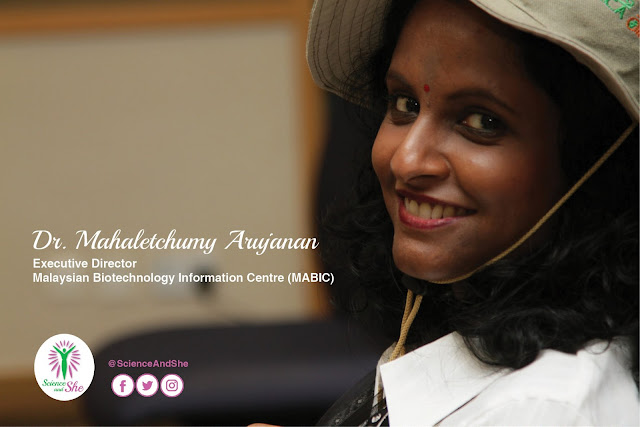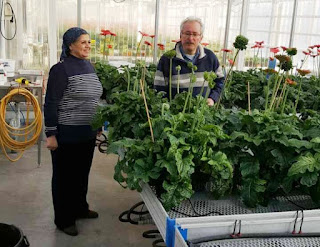Science and She is an online campaign of the International Service for the Acquisition of Agri-biotech Applications (ISAAA) and its network of Biotechnology Information Centers which aims to empower women in science. Scientists and science communicators tell their stories and aspirations for science and the society with the hope that the stories will help bridge the gap between science and the public.
For each week, one female scientist or science communicator serves as the curator of the Science and She social media pages on Facebook, Twitter, and Instagram. One of the previous curators of the pages was Dr. Barbara Mugwanya Zawedde, Coordinator for the Uganda Biosciences Information Center, a knowledge and information sharing hub of the National Agricultural Research Organization (NARO) in Uganda. Barbara is also the Vice Chairperson for the Uganda Biotechnology and Biosafety Consortium. She offered a course in Biosafety, Biopolicy, and Bioethics to postgraduate students at Makerere University Michigan State University
Dr. Zawedde shared that her interest in science started when she was 10 years old. Her auntie was a medical doctor working with Red Cross and lived in many parts of the world. She dreamt to be like her. When she reached college, she enrolled in the Agriculture Program. There she also found another role model—Dr. Theresa Sengooba. In 2003, Theresa was the leader of the East African Component for the Program for Biosafety Systems and she hired Barbara as her Programme Assistant. That work exposed her to biotechnology, which she found to offer enormous opportunities for national development.
“In 2013, we established the Uganda Biosciences Information Center (UBIC) as a knowledge and information Hub of the National Agricultural Research Organization (NARO). I am very passionate about UBIC because I want to contribute to establishing and implementing appropriate policies and regulatory systems that will allow for effective use of modern biosciences. UBIC provides a platform for stakeholders’ discourse on how to translate research outputs into information that helps end-users to make informed decisions,” Dr. Zawadde said.
To date, UBIC has become a platform for inspiring and capturing the interest of various youth segments to join the biosciences community. Through their drawing and writing contests, the youth have been encouraged to join the discourse on how modern biosciences can be effectively applied for national development. It is very pertinent for African countries to build a critical mass of young cadres that will enhance the competitive advantage of this continent through innovation and application of appropriate modern technologies.
“I look forward to the day when all scientists will appreciate and allocate resources for communicating about their findings. A lot has been generated through science but the majority has remained on the shelf or has been misused―resulting in rejection―because of inadequate information or misinformation. Biotechnology especially genetic engineering is a victim of such sad reality,” Dr. Zawadde shared.




































